#Historical fiction
Text

Cozy Sunday vibes 🤍
#booklr#book photography#book picture#the warm hands of ghosts#katherine arden#bookworm#bibliophile#fiction#historical fiction#book community#book aesthetic#books and dogs#book lover#book nerd#my photos#mine
30 notes
·
View notes
Note
How would Baldwin react if reader got sick?
King Baldwin x reader - sickness
A/N: I'm loving all this king Baldwin enthusiasm, I've been waiting for this moment for ages omfg!!! (little 10 year old me is screaming now that I have the chance to write for my historical crush).
Btw I don't know if I should be making all the fancy set up for all headcanons of him (like, author's note, warning and painting), the last posts didn't have it because it didn't seem fit to me but you let me know
Psssst painting is "Paolo and Francesca" by Frank Dicksee
Warning: none, sickness maybe?
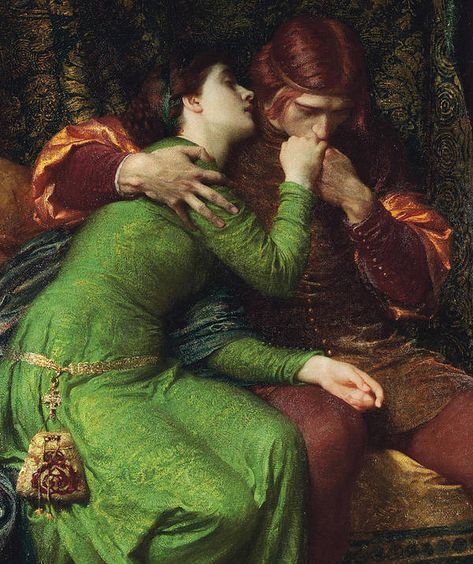
Oh boy
You wouldn't be able to leave your bed.
Sickness was a big deal back then, you could easily die form a cold, so ain't no way that he's taking any more risks.
To be honest the climate was less brutal in Jerusalem than Europe, which was even colder than modern times (and living in Switzerland I can assure you that it gets REALLY cold).
He would insist on keeping you in his quarters, always near his sight, and when he had to leave to attend to his royal duties you'd be surrounded by his best physicians to take care of you.
But he would like it best when he's the one tending to you, it's one of the most intimate moments he gets with his beloved
He'd use a wet cloth to clean your face of the sweat, gently caress your body while he orders to get some ice from his servants to cool your body down
Incense would fill the room to ease your mind and make the ambience more comfortable for you to rest
He'd love to bathe you, hold your weakened body as he frees you of that sickly sticky feeling that has been clinging to your body for the past days
It would take you some convincing to let him sleep with you in the same bed to be honest, as he would've been too scared to be that close to you while you're so weakened already
Because, what if in this state your body is so weak and ill already that it makes it easier for you to contract leprosy as well? He wouldn't survive the guilt of knowing that he'd be the cause of your demise
He would've only relented after seeing your pleading eyes, begging to have him close to you at night, to not be left alone, to not have to suffer his absence too
But all his worries would be washed away once he got to feel your body close to his once again, see your droopy eyes looking at him and your weak smile of gratitude for his closeness
Then, once you would've fallen asleep, he would hold you a close as possible, kissing your boiling hot forehead while he prayed God to let you live, to let you stay with him just a little longer
And he was sure his prayers had been listened once he wakes up to the sight of you, smiling at him with renewed strength, your body once again fresh to the touch
You were healed, and he couldn't have been more happy even if he'd woken up healed by leprosy himself
#f!reader#king baldwin x reader#kingdom of heaven#king baldwin iv#king baldwin x you#headcanons#historical fiction#anon ask
23 notes
·
View notes
Text
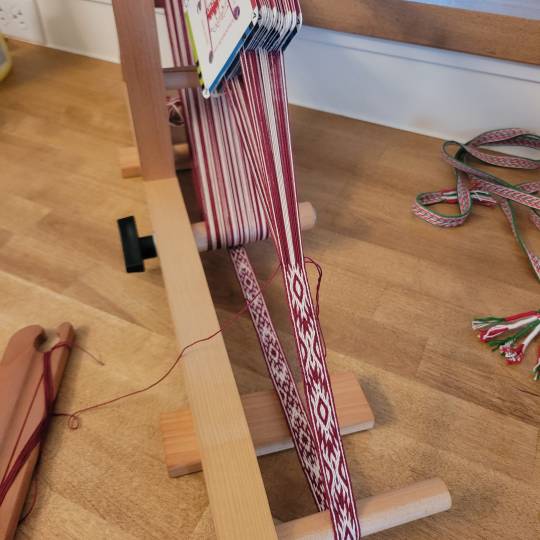
9th century novel research continues with tablet weaving!
Tablet or card weaving was used across Europe and Asia to make belts, straps, and cords that could withstand tremendous stress and tension. They were also incredibly intricate, with many archaeological finds once belonging to wealthy individuals brocaded in silver or gold. In Scandinavia during the time my novel is set tablet bands would have been woven of wool or linen, using what we today call Oseberg post looms or backstrap looms paired with tablets made of wood or bone. Inkle looms like this one are a later invention much more convenient for modern weavers, allowing the weaver to pick up and put down the project without losing tension.
#writing research#novel research#weaving#tablet weaving#card weaving#fiber arts#textile history#weaving history#historical fantasy#historical fiction
17 notes
·
View notes
Text
All that remains: Part I
In the land just past the Decapolis, by the tombs of the city's most ancient forebears, there lived a man called Legion. Some days, he howled like a beast, laughing as he savaged his own flesh with the jagged edges of stones. Other days he wept like a child, teeth chattering even as the sun blazed overhead. But more days still, he lingered in the quiet spaces, haunted but lucid: A stranger to the land and a stranger to himself.
He called himself Legion because he was made of many parts. Memories without attachments, stories without endings. Fragments. Worse, he felt like he could only hold a few of the pieces at a time. Trying to assemble himself felt like an endless effort of cupping his hands together tight, filling them with details, reaching up to his mouth, and realizing they had already slipped through his fingers. An endless thirst for which he had no cure.
The town called him Legion, because they remembered what he often forgot: That he was a Roman, as well as a former soldier. If he’d been anything less, they’d have driven him away. Instead, they fussed over him endlessly, all too aware that to harm a single hair upon his head was to invoke the wrath of the largest army the world had ever seen.
(Which was a problem, because he was all too willing to harm himself.)
On Legion’s good days they simply gave him space. He’d tried describing once, all the things that could bring his demons out: The clash of metal, the twang of a bowstring. A scream of pain. Those were easy enough to remember and avoid, but others were not. Certain phrases in Latin, ones related to marching, used for giving directions. Certain smells - the roasting of pork, the burning of sulfur. The way some men from distant lands braided their hair.
So many little things.
They were a lot to keep track of, and the cost of failure was high. It seemed easier for the people of the town to simply avoid him altogether. That it let them ignore his suffering was simply a pleasant side effect.
On his bad days, they had to intervene more directly. He was strong when he was well, but his sickness could make him almost invincible. Whole teams of men would be sent into the tombs while he screamed and roared, and it could take them hours to tie him down and pry the rocks from his trembling fingers. To put a rolled up rag into his mouth and silence the phrase he shouted over and over, summoning more demons into himself with each incantation: TORNA MIRA, TALIS EST COMODUM MILES BARBATI.
Sometimes, it took more than a day of being restrained that way for him to find himself again. They’d send children out to the edge of the town to listen, and when he finally went silent they’d travel back to free him from his chains. It was a beastly, shameful task every time, and Legion made it worse by never being angry. Without fail, the first thing he said every time the rag was removed was:
Συγγνώμη, δεν ήθελα να σε τρομάξω.
Forgive me, I did not mean to scare you.
Everyone knew that the way things were being handled wasn’t enough. Everyone, even Legion, knew how things would end. They just weren’t sure when.
It turned out that it was longer than six years.
#historical fiction#weird theology#thanks sam kriss#i liked writing this but i am mostly relieved that its done so i can write something else#bible fiction?#cant believe i left mormonism just to keep writing bible fanfiction lol#its like my peoples legacy to keep doing this#the ol' family tradition#theism
18 notes
·
View notes
Text
One of my biggest nitpicks in fiction concerns the feeding of babies. Mothers dying during/shortly after childbirth or the baby being separated form the mother shortly after birth is pretty common in fiction. It is/was also common enough in real life, which is why I think a lot of writers/readers don't think too hard about this. however. Historically, the only reason the vast majority of babies survived being separated from their mother was because there was at least one other woman around to breastfeed them. Before modern formula, yes, people did use other substitutes, but they were rarely, if ever, nutritionally sufficient.
Newborns can't eat adult food. They can't really survive on animal milk. If your story takes place in a world before/without formula, a baby separated from its mother is going to either be nursed by someone else, or starve.
It doesn't have to be a huge plot point, but idk at least don't explicitly describe the situation as excluding the possibility of a wetnurse. "The father or the great grandmother or the neighbor man or the older sibling took and raised the baby completely alone in a cave for a year." Nope. That baby is dead I'm sorry. "The baby was kidnapped shortly after birth by a wizard and hidden away in a secret tower" um quick question was the wizard lactating? "The mother refused to see or touch her child after birth so the baby was left to the care of the ailing grandfather" the grandfather who made the necessary arrangements with women in the neighborhood, right? right? OR THAT GREAT OFFENDER "A newborn baby was left on the doorstep and they brought it in and took care of it no issues" What Are You Going to Feed That Baby. Hello?
Like. It's not impossible, but arrangements are going to have to be made. There are some logistics.
#idk what to tag this#worldbuilding#writing fiction#historical fiction#fantasy#a real-life example: my dad (a pediatrician) was once entrusted with the care of a baby who was born with a rare condition#this was in a place without great hospital/medical access and anyway they were going to fly the baby over#and he specifically asked them to bring the mother and baby#they show up with baby and...the baby's uncle#and he was like. y'all. do you think I asked for the mom to come just for fun??? We don't have formula here. what is the baby going to eat?
37K notes
·
View notes
Text
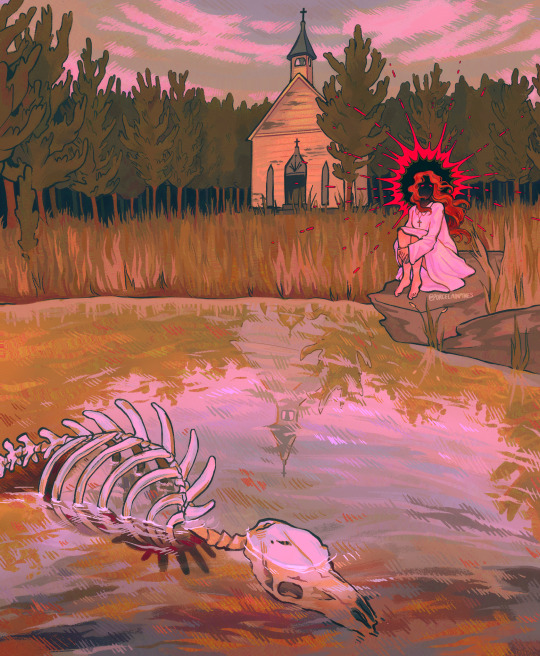
putrid air
#reference photo/inspo is by brendan burton (@burtoo on twt)#original character#digital painting#oc artist#queer artist#digital art#trans artist#lgbt art#oc#oc artwork#cowboy oc#historical oc#western oc#historical fiction#character design#cowboys#rosie#horror art#creepy art#unsettling art
42K notes
·
View notes
Text
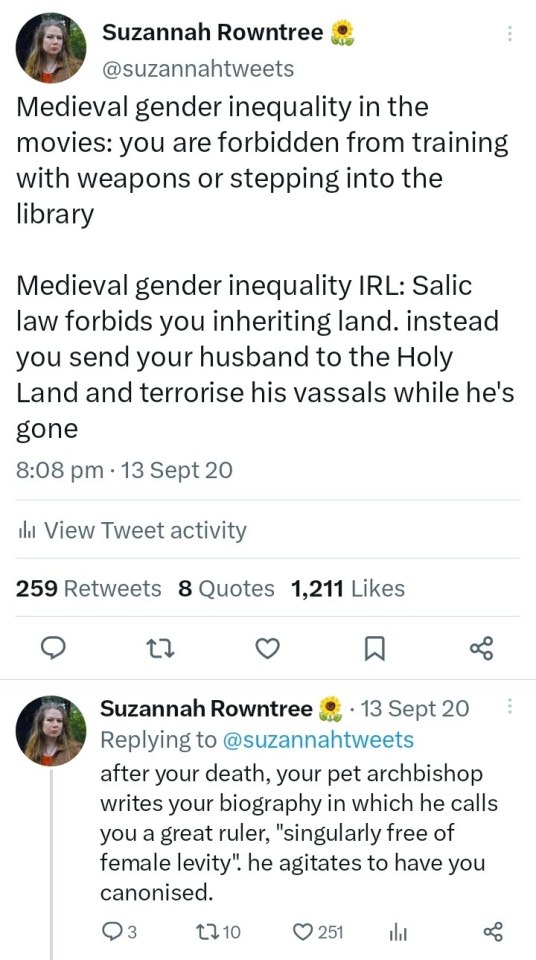
all RIGHT:
Why You're Writing Medieval (and Medieval-Coded) Women Wrong: A RANT
(Or, For the Love of God, People, Stop Pretending Victorian Style Gender Roles Applied to All of History)
This is a problem I see alllll over the place - I'll be reading a medieval-coded book and the women will be told they aren't allowed to fight or learn or work, that they are only supposed to get married, keep house and have babies, &c &c.
If I point this out ppl will be like "yes but there was misogyny back then! women were treated terribly!" and OK. Stop right there.
By & large, what we as a culture think of as misogyny & patriarchy is the expression prevalent in Victorian times - not medieval. (And NO, this is not me blaming Victorians for their theme park version of "medieval history". This is me blaming 21st century people for being ignorant & refusing to do their homework).
Yes, there was misogyny in medieval times, but 1) in many ways it was actually markedly less severe than Victorian misogyny, tyvm - and 2) it was of a quite different type. (Disclaimer: I am speaking specifically of Frankish, Western European medieval women rather than those in other parts of the world. This applies to a lesser extent in Byzantium and I am still learning about women in the medieval Islamic world.)
So, here are the 2 vital things to remember about women when writing medieval or medieval-coded societies
FIRST. Where in Victorian times the primary axes of prejudice were gender and race - so that a male labourer had more rights than a female of the higher classes, and a middle class white man would be treated with more respect than an African or Indian dignitary - In medieval times, the primary axis of prejudice was, overwhelmingly, class. Thus, Frankish crusader knights arguably felt more solidarity with their Muslim opponents of knightly status, than they did their own peasants. Faith and age were also medieval axes of prejudice - children and young people were exploited ruthlessly, sent into war or marriage at 15 (boys) or 12 (girls). Gender was less important.
What this meant was that a medieval woman could expect - indeed demand - to be treated more or less the same way the men of her class were. Where no ancient legal obstacle existed, such as Salic law, a king's daughter could and did expect to rule, even after marriage.
Women of the knightly class could & did arm & fight - something that required a MASSIVE outlay of money, which was obviously at their discretion & disposal. See: Sichelgaita, Isabel de Conches, the unnamed women fighting in armour as knights during the Third Crusade, as recorded by Muslim chroniclers.
Tolkien's Eowyn is a great example of this medieval attitude to class trumping race: complaining that she's being told not to fight, she stresses her class: "I am of the house of Eorl & not a serving woman". She claims her rights, not as a woman, but as a member of the warrior class and the ruling family. Similarly in Renaissance Venice a doge protested the practice which saw 80% of noble women locked into convents for life: if these had been men they would have been "born to command & govern the world". Their class ought to have exempted them from discrimination on the basis of sex.
So, tip #1 for writing medieval women: remember that their class always outweighed their gender. They might be subordinate to the men within their own class, but not to those below.
SECOND. Whereas Victorians saw women's highest calling as marriage & children - the "angel in the house" ennobling & improving their men on a spiritual but rarely practical level - Medievals by contrast prized virginity/celibacy above marriage, seeing it as a way for women to transcend their sex. Often as nuns, saints, mystics; sometimes as warriors, queens, & ladies; always as businesswomen & merchants, women could & did forge their own paths in life
When Elizabeth I claimed to have "the heart & stomach of a king" & adopted the persona of the virgin queen, this was the norm she appealed to. Women could do things; they just had to prove they were Not Like Other Girls. By Elizabeth's time things were already changing: it was the Reformation that switched the ideal to marriage, & the Enlightenment that divorced femininity from reason, aggression & public life.
For more on this topic, read Katherine Hager's article "Endowed With Manly Courage: Medieval Perceptions of Women in Combat" on women who transcended gender to occupy a liminal space as warrior/virgin/saint.
So, tip #2: remember that for medieval women, wife and mother wasn't the ideal, virgin saint was the ideal. By proving yourself "not like other girls" you could gain significant autonomy & freedom.
Finally a bonus tip: if writing about medieval women, be sure to read writing on women's issues from the time so as to understand the terms in which these women spoke about & defended their ambitions. Start with Christine de Pisan.
I learned all this doing the reading for WATCHERS OF OUTREMER, my series of historical fantasy novels set in the medieval crusader states, which were dominated by strong medieval women! Book 5, THE HOUSE OF MOURNING (forthcoming 2023) will focus, to a greater extent than any other novel I've ever yet read or written, on the experience of women during the crusades - as warriors, captives, and political leaders. I can't wait to share it with you all!
#watchers of outremer#medieval history#the lady of kingdoms#the house of mourning#writing#writing fantasy#female characters#medieval women#eowyn#the lord of the rings#lotr#history#historical fiction#fantasy#writing tip#writing advice
29K notes
·
View notes
Text
why are skirts inherently evil and oppressive in historical fiction until men are wearing them
I've never heard anyone going on at length about how Universally ImpracticalTM the garb of a Scotsman or an ancient Roman politician are
suddenly everyone has a concept of situational practicality that previously was not there
#history#clothing history#historical fiction#'SKIRTS are so IMPRACTICAL-' always? every time? for everyone?#because I don't know about you but I live in a city and work in museums#skirts are A-okay for me#also people have done MANY types of physical activity in skirts for centuries. sometimes pants are more practical for sure!#but. not always.#and you never hear fiction authors talking about how oppressed Scotsmen are by their kilts#'he couldn't FUNCTION because he wasn't wearing PANTS!' I'd like to see someone try it
2K notes
·
View notes
Note
Hi I was wondering if you know of any good resources to get good vintage names that aren’t typical and boring (Fred, Edward, Alfred etc)?
Some of the names in the Santa letters are certainly peculiar and it made me wonder what kind of names those “vintage baby names” lists are leaving out 😜
Thanks! And happy new year 🎊
One place to get a good general overview of what names were like in a certain era is the Social Security Administration's lists of popular names that go back to the 1880s. The further down the lists you go the less common they get. However these are still all names that had at least a few hundred occurrences, so you're not going to have any Gloyds etc..
I personally always try to find names from primary sources (newspapers, census, vital records, etc.) as you're more likely to come across unusual names that don't make the top 200 lists.
Also keep in mind that name popularity varied greatly by location. Just because there were a bunch of Juanitas in Tulsa in 1930 doesn't mean there were that many in Boston.
Honestly if anyone is working on a specific project and needs names from a certain location/era (i.e. you're writing a novel that takes place in London in 1627) feel free to message me and I'd be happy to work with you to compile a list from primary sources. I love this stuff and will use any valid excuse to spend an evening digging through 17th century baptismal records.
#if you buy me a coffee I might even make you a simple custom name generator#I do this for myself all the time because I'm a party person who really likes spreadsheets#names#history#historical fiction#writing resources#asks#@sir-sleepalot#writing reference#character names
2K notes
·
View notes
Text
my blacksmith business is doing unusually well this month
keep reading >>
1K notes
·
View notes
Text
Non-offensive Historical terms for Black people in historical fiction
@pleasespellchimerical asked:
So writing historical fiction, with a white POV character. I'm not sure how to address race in the narration. I do have a Black main character, and I feel like it'd feel out of place to have the narrator refer to her as 'Black', that being a more modern term. Not sure how to do this without dipping into common historical terms that are considered racist today. Thoughts on how to handle this delicately, not pull readers out of the narrative? (fwiw, the POV character has a lot of respect for the Black character. The narration should show this)
There are non-offensive terms you can use, even in historical fiction. We can absolutely refer to Black people without slurs, and if slurs is all one can come up with, it’s time to go back to the drawing board. I cannot say which terms are best for your piece without knowing the time period, but hopefully the list below helps.
Historical terms to use for Black people (non-offensive)
African American documented as early as 1782 (documented in an ad in the Pennsylvania Journal). Note the identity isn’t accurate for non-American Black people.
African could refer to African people or “from 1722 as ‘of or pertaining to black Americans.’”
The place of origin could also be used. For example, “a Nigerian woman”
Africo-American documented as early as 1788.
People of Color documented as early as 1796 (with specific contexts, usually mixed people)
Afro American documented as early as 1817, 1831 (depending on source)
Black American documented as early as 1831
Black was used in Old English to refer to dark-skinned people. Black was not capitalized until recent years, so “She was a young black woman.” would make sense to say, though “She was a young Black woman.” is the better standard today, although not universally adopted. I personally prefer it capitalized.
Moor was used as early as the late 1400s for North African people, but had a somewhat flexible use where anyone visibly Black / Of African descent or the Afro Diaspora might be referred to or assumed as a Moor. Note, it has other meanings too, such as referring to Muslim people, but that doesn’t mean the person using it is going by the dictionary definition. Not really the way to go today, but okay in a historical setting (in my opinion).
Biracial (1860s), mixed race (1872), multiracial (1903) and multicultural (1940s) are also terms to refer to people of two or more races.
Occupation + description. Throughout history, many people have been referred to as their occupation. For example, the Carpenter, The Baker, the Blacksmith. Here’s an example of how you might go about using occupation and traits to identify a Black character in history. Here’s an example I came up with on the fly.
“You should go by Jerry’s. He’s the best blacksmith this town’s ever seen. Ya know, the real tall, dark-skinned, curly haired fellow. Family’s come here from Liberia.”
Offensive and less-sensitive terms for Black people
Blacks was used in plural more, but this is generally offensive today (Even writing it gives me **Thee ick*)
Colored was mostly used post-civil war until the mid 20th century, when it became unacceptable. This is not to be conflated with the South African Coloured ethnic group.
Negro/Negroes were also used as early as the 1550s. Capitalization became common in the early 20th century. I'm sure you know it is offensive today, though, admittedly, was not generally seen as such until around the 1960s, when Black replaced it. It does have its contexts, such as the trope “The Magical Negro” but going around using the term or calling someone that today is a lot different.
Mulatto referred to mixed people, generally Black and white, and is offensive today.
The N-word, in all its forms, is explicitly a slur, and there is absolutely no need to use it, especially in a casual manner, in your story. We’ve written about handling the N-word and alluding to it “if need be” but there are other ways to show racism and tension without dropping the word willy-nilly.
Deciding what to use, a modern perspective
I’m in favor of authors relying on the less offensive, more acceptable terms. Particularly, authors outside of the race. Seldom use the offensive terms except from actual direct quotes.
You do not have to use those offensive terms or could at least avoid using them in excess. I know quite famous stories do, but that doesn’t mean we have to so eagerly go that route today. Honestly, from teachers to school, and fellow non-Black students, it’s the modern day glee that people seem to get when they “get a chance to say it” that makes it worse and also makes me not want to give people the chance.
It goes back to historical accuracy only counting the most for an “authentic experience” when it means being able to use offensive terms or exclude BIPOC from stories. We’ve got to ask ourselves why we want to plaster certain words everywhere for the sake of accuracy when there are other just as accurate, acceptable words to use that hurt less people.
Disclaimer: Opinions may vary on these matters. But just because someone from the group cosigns something by stating they’re not offended by it, doesn’t mean a whole lot of others are okay with it and their perspectives are now invalid! Also, of course, how one handles the use of these words as a Black person has a different connotation and freedom on how they use them.
~Mod Colette
The colonial context
Since no country was mentioned, I’m going to add a bit about the vocabulary surrounding Black people during slavery, especially in the Caribbean. Although, Colette adds, if your Black characters are slaves, this begs the question why we always gotta be slaves.
At the time, there were words used to describe people based on the percentage of Black blood they had. Those are words you may find during your searches but I advise you not to use them. As you will realize if you dive a bit into this system, it looks like a classifying table. At the time, people were trying to lighten their descent and those words were used for some as a sort of rank. Louisiana being French for a time, those expressions were also seen there until the end of the 19th century.
The fractions I use were the number of Black ancestors someone had to have to be called accordingly.
Short-list here :
½ : mûlatre or mulatto
¼ or ⅛ : quarteron or métis (depending on the island, I’m thinking about Saint-Domingue, Martinique and Guadeloupe)
1/16 : mamelouk
¾ : griffe or capre
⅞ : sacatra
In Saint-Domingue, it could go down to 1/64, where people were considered sang-mêlé (mixed blood for literal translation, but “HP and the Half-Blood Prince” is translated “HP et le Prince de Sang-Mêlé” in French, so I guess this is another translation possibility).
-Lydie
Use the 3rd person narrative to your advantage
If you are intent on illustrating historical changes in terminology consider something as simple as showing the contrast between using “black” for first person character narration, but “Black” for 3rd person narrator omniscient.
-Marika
Add a disclaimer
I liked how this was addressed in the new American Girl books
it’s set in Harlem in the 1920’s and there’s a paragraph at the beginning that says “this book uses the common language of the time period and it’s not appropriate to use now”
-SK
More reading:
NYT: Use of ‘African-American’ Dates to Nation’s Early Days
The Etymology dictionary - great resource for historical fiction
Wikipedia: Person of Color
2K notes
·
View notes
Text

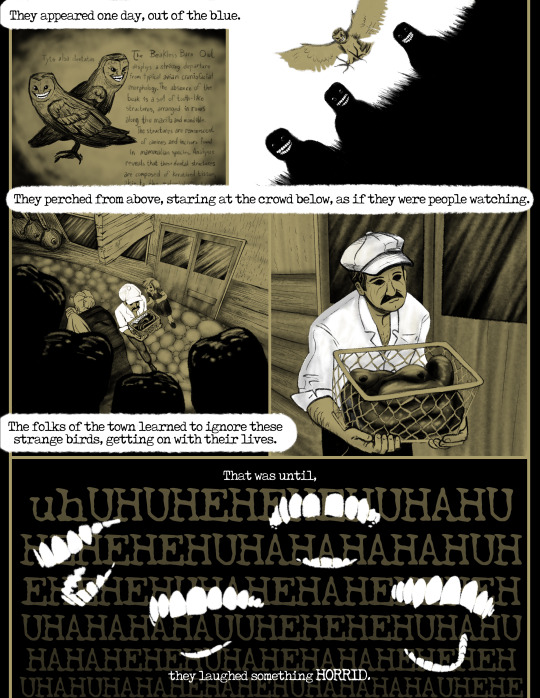
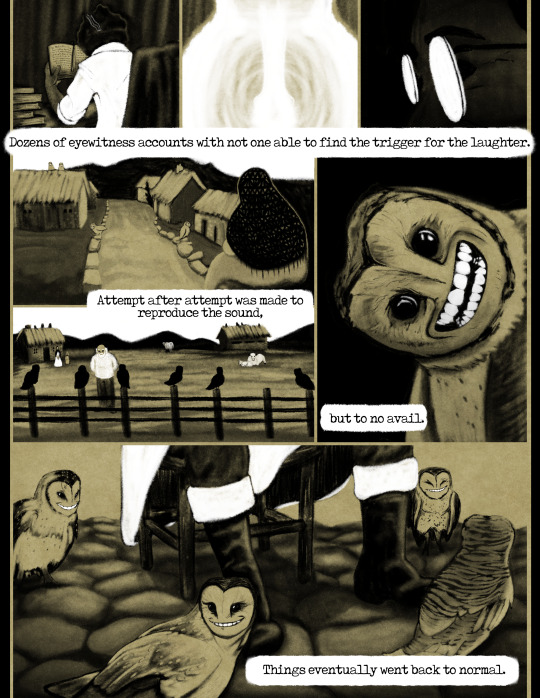
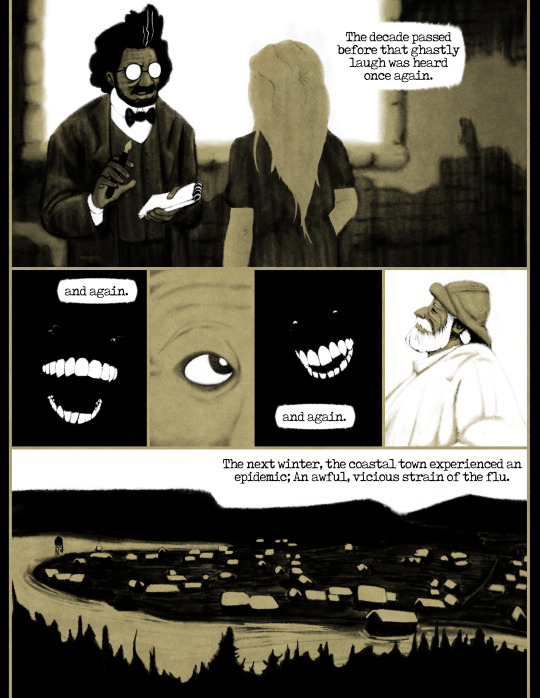
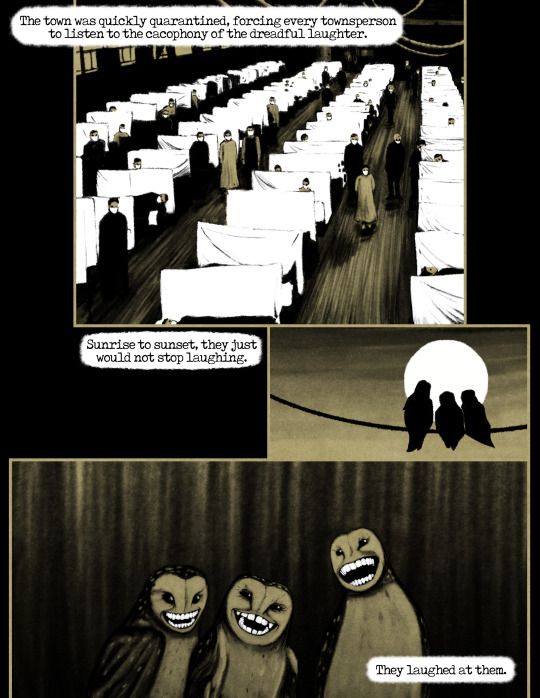
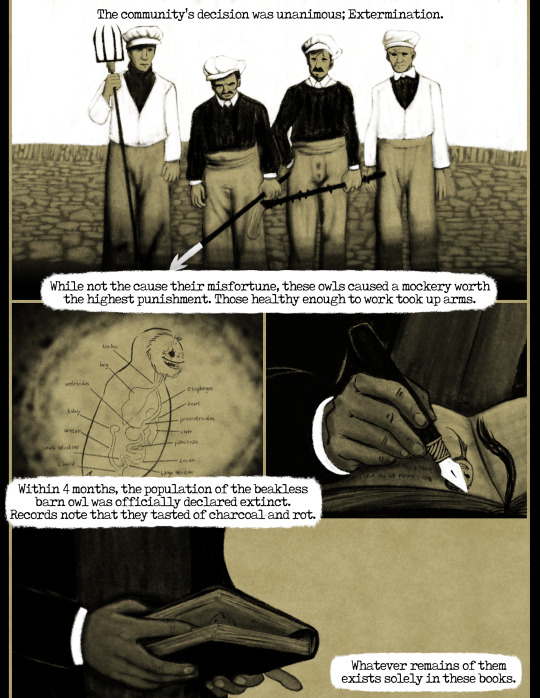
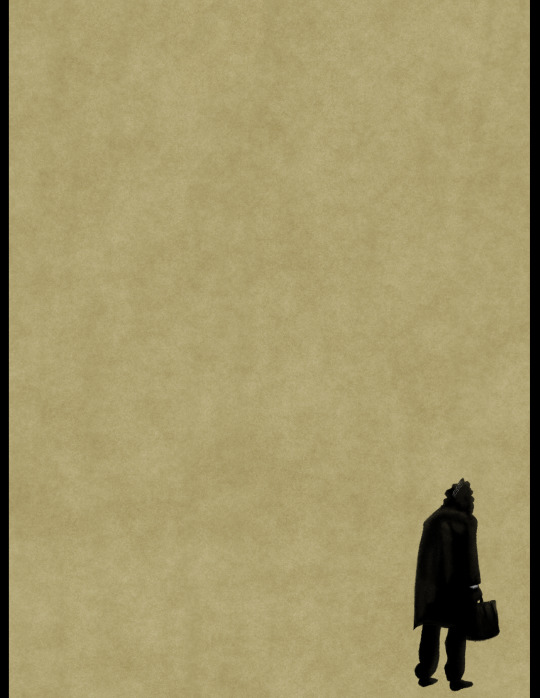
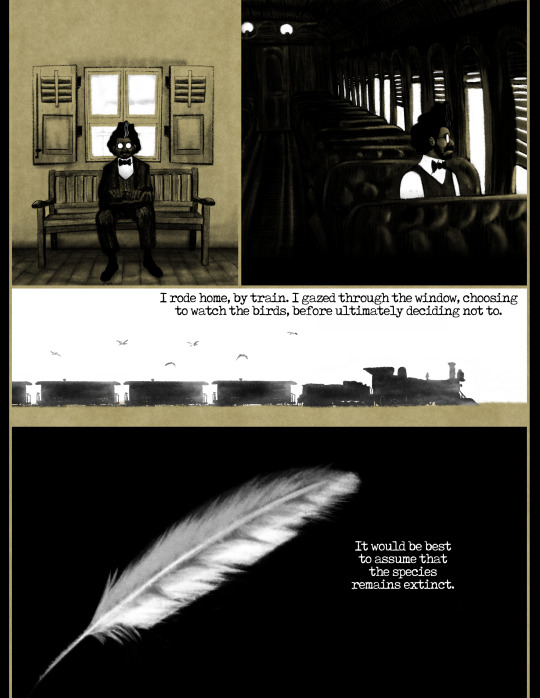
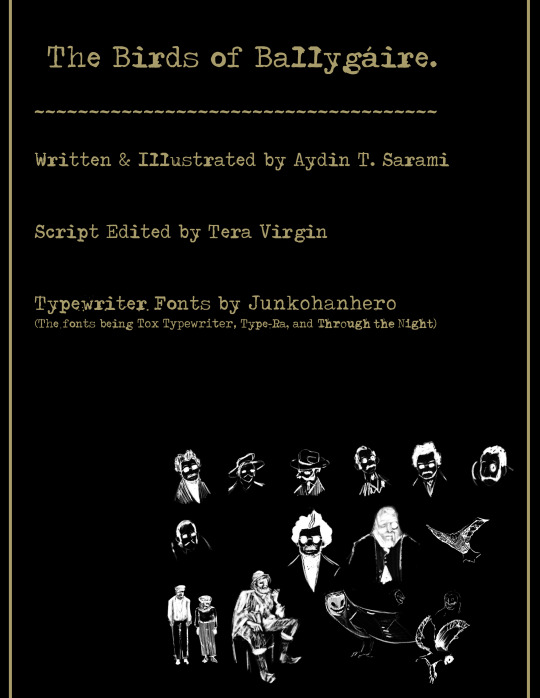
The Birds of Ballygáire.
thank you so much for reading. i appreciate it.
Special thanks to @terastrialbean for script editing & @junkohanhero for their wonderful typewriter fonts.
#oc#ocs#artists on tumblr#art#lovecraftian horror#lovecraft#horror#tyto alba#barn owl#bird#bird art#pendeedles#comic#comics#indie comic#indie comics#horror comic#teeth#irish horror#horror art#vintage#vintage horror#horror comics#indiecomics#dark fantasy#historical horror#historical fiction#illustrationartists#folk horror
895 notes
·
View notes
Text
All my illustrations for David Tennant's magnificent Richard II.
Act One



(No Act Two because 1) it's very short, and 2) he's a complete and utter raging git in it XD)
Act Three



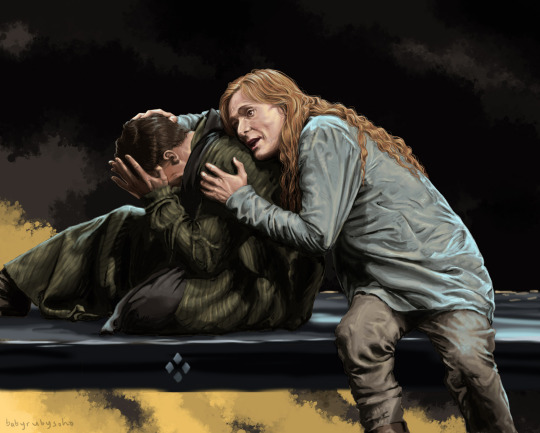


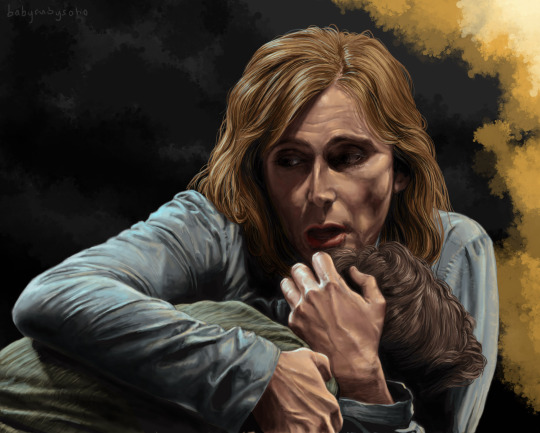
Act Four




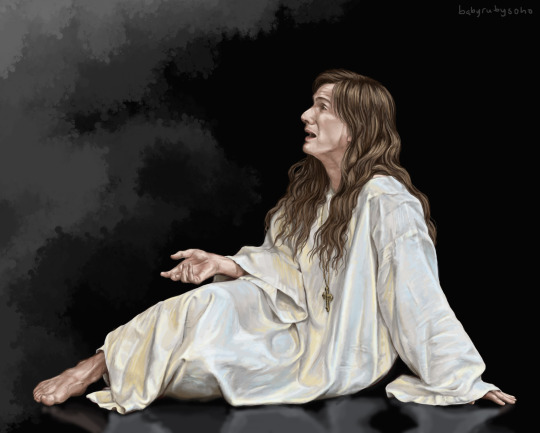
Act Five
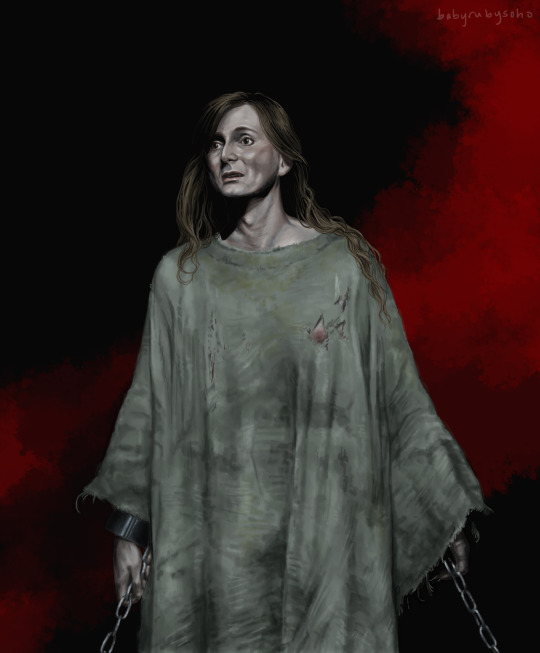

(Thought I'd throw them up all together because right now it's the art I'm proudest of😊)
#david tennant#richard ii of england#richard ii#shakespeare fanart#historical fiction#babyrubysoho art
693 notes
·
View notes
Text
can’t currently afford the print copy of the fabulous @lackadaisycats work?
maybe your local library will buy it in the meantime! hand for scale.
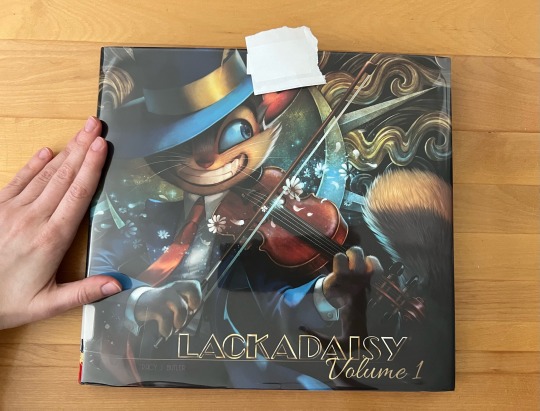
reading a hard copy of what I found years ago on the internet is cool in its own right, but the over 20 pages of bonus content are what’s really tempting.
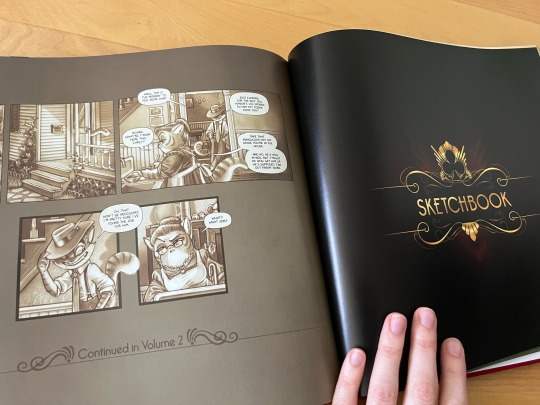
note about the back cover: this is what was facing out as I carried the book in my arm out of the library and into the streets. certainly didn’t make me look like a psycho I’m sure.

#cheers#lackadaisy#lackadaisy comic#lackadaisy cats#tracy j butler#iron circus comics#good art#good books#graphic novel#webcomic#public libraries#library books#library#books & libraries#support artists#1920s#historical fiction#anthromorphic#writeblr#artblr#booklr
774 notes
·
View notes
Text
2K notes
·
View notes
Text
"As soon as we die, we enter into fiction. Just ask two different family members to tell you about someone recently gone, and you will see what I mean. Once we can no longer speak for ourselves, we are interpreted."
— Hilary Mantel, from Reith Lectures, Resurrection: The Art and Craft
#hilary mantel#lit#literature#historical fiction#english#english lit#english literature#death#wolf hall
12K notes
·
View notes